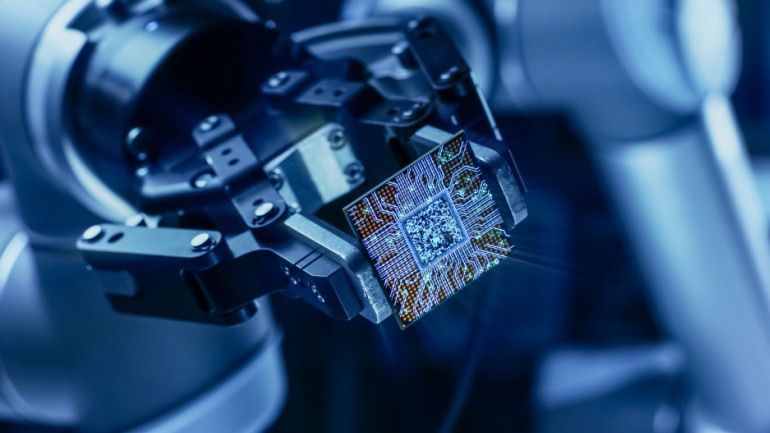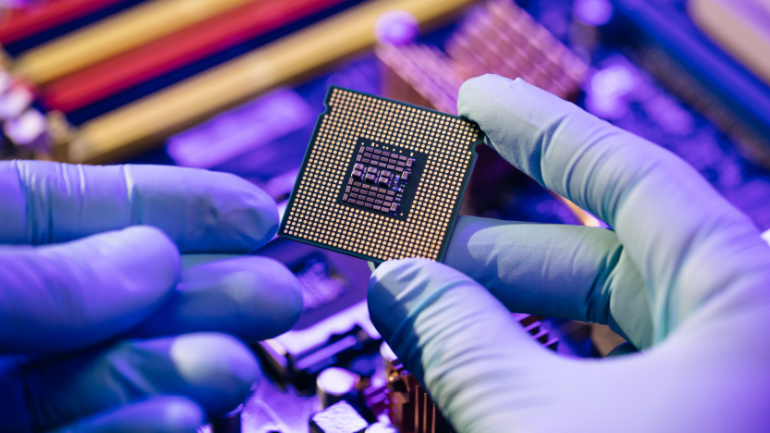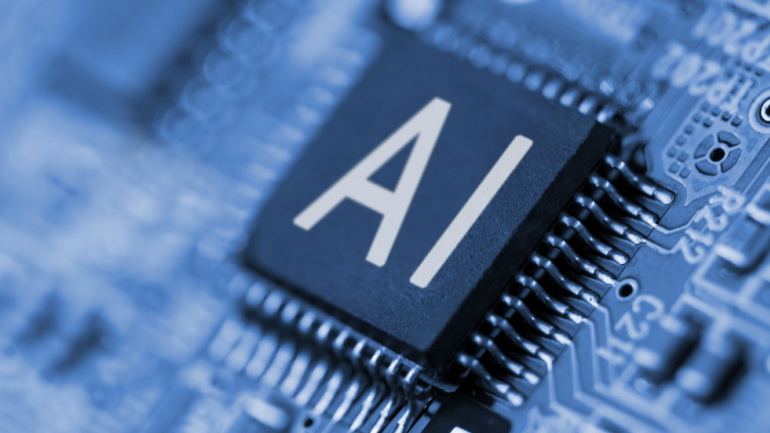With a hefty $6.6 billion subsidy by the U.S. government, Taiwan Semiconductor Manufacturing Co (TSMC) embarks on an unprecedented development in semiconductor industry. This boost is not only expected to foster job creation with an estimate of up to 6,000 high-tech positions but also promises to democratize access to advanced technologies.
In the ongoing geopolitical saga between the US and China, the global supply chain and the semiconductor industry are at the forefront. Both nations’ governmental bodies are ramping up subsidies to stimulate growth in domestic manufacturing and insulate against sanctions.
A research team led by Professor Wang Cheng from the Department of Electrical Engineering (EE) at City University of Hong Kong (CityUHK) has developed a world-leading microwave photonic chip that is capable of performing ultrafast analog electronic signal processing and computation using optics.
DTST successfully merges Flagship Solutions Group and CloudFirst. Senior Technology Analyst Anisha Bhatia underscores the game-changing impact of Samsung’s Galaxy S24 series. NTT DoCoMo utilizes AI to generate diverse NPCs in metaverses, extends genAI initiatives to predict and visualize changes in the human brain. South Korean President Yoon Suk-yeol unveils a $471 billion initiative by 2047 to establish the world’s largest semiconductor cluster.
In the ongoing technological rivalry between the United States and China, Huawei has emerged as a significant beneficiary, particularly in the realm of artificial intelligence (AI). The U.S. government, in its persistent efforts to hinder China’s progress in AI development, has implemented various bans on the sale of certain products from American companies to their Chinese counterparts. The focus of this battle shifted notably to AI over the past year, with China positioning itself as a frontrunner in AI, albeit still relying on U.S. company Nvidia for crucial high-performance chips.
In a strategic move, Intel has partnered with private equity firm DigitalBridge to introduce Articul8, a new company set to bring enterprise-grade generative AI technology to the market. Articul8 aims to provide corporate customers with a secure and vertically-optimized genAI software platform, designed to run seamlessly on Intel hardware, including Xeon processors and Gaudi AI accelerators.
In a groundbreaking shift, artificial intelligence (AI) is revolutionizing material discovery, unlocking new possibilities in renewable energy, semiconductors, and pharmaceuticals. GlobalData, a prominent data and analytics firm, asserts that AI is spearheading a transformative era in research and development, dismantling traditional barriers and fueling unprecedented advancements in material science.
The UK government’s recent decision to continue a tax exemption policy marking network gear costs as deductible pre-tax profit boosts established telecom firms like BT, although smaller enterprises might not see similar benefits. This fiscal initiative heavily benefits BT in their £15 billion full-fibre project, increasing their capital spending by £300 million annually, expediting their fibre rollout to 25 million homes by 2026.
The European Commission is urging member states to conduct shared risk assessments in key tech realms including advanced semiconductors, AI, quantum tech, and biotech. Amidst the cloud of geopolitical tech skirmishes, EU stands poised to protect sensitive technologies and is resolved not to preemptively decide on any corrective measures. Only time will reveal the Commission’s next steps after risk assessments.
The EU’s first annual State of the Digital Decade report highlights an urgent call to action for increased investment to meet its 2030 technology targets. The report underlines the significance of collective efforts by member states to successfully navigate the prevalent digital transformation. The document illuminates areas such as 5G deployment, which has been slower than expected, and inadequate fiber network coverage, among others. Simultaneously, it draws attention to other essential aspects, like digital sovereignty and the digitalization of businesses, suggesting an additional investment of at least €200 billion may be necessary. Issues such as these could hamper the bloc’s ambition to double its share in the semiconductor sector by 2030.













